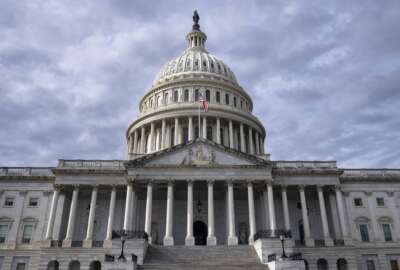Bid protests holding steady near record highs
The number of total bid protests filed by companies with the Government Accountability Office leveled off last year, falling slightly in fiscal 2013 compared to...
The number of total bid protests filed by companies with the Government Accountability Office leveled off last year, falling slightly in fiscal 2013 compared to the previous year.
All told, GAO received 2,429 bid protests — 2 percent less than the number received in fiscal 2012, according to figures released Jan. 2 in an annual report to Congress.
(See full chart below)
Despite the drop, the number of protests filed last year remains higher than for any year since 1995, with the exception of last year.
It’s also the first time bid protests, which have steeply risen in recent years, fell year-to-year since 2006. Protests are the formal mechanism contractors use to object to the awarding of a contract they contend violated federal procurement rules.
The number of decisions reached by GAO on the merits — either denying or sustaining a protest — also declined last year. GAO reached a decision in 509 cases, about 60 fewer cases than in 2012. Of those, just 87 — 17 percent — were sustained by GAO, meaning it agreed that the awarding agency violated procurement laws or regulations in awarding a contract.
In 2012, more than 18 percent of decisions were sustainments. The most common reasons for sustaining protests, according to the report, were agencies’ failure to follow criteria for evaluating solicitations, inadequate documentation, unequal treatment of bidders and unreasonable price or cost evaluation.
Federal agencies have declined to implement GAO’s recommendations on bid protest filings in two instances, GAO reported. First, GAO dinged the Department of Housing and Urban Development for improperly using what’s known as “notice of funding available” or NOFA to award contracts. HUD announced in late 2012 it was moving forward with the NOFA, regardless.
Second, the Department of Veterans Affairs disregarded 16 separate sustainments from GAO during 2013, stemming from a years-long legal battle between VA and two service-disabled, veteran-owned small business (SDVOB) contractors. The two contractors — Aldevra and Kingdomware Technologies — protested the agency’s decision to issue contracts through the Federal Supply Schedule without first considering legally mandated SDVOSB set asides.
In each of the 16 cases, VA declined to follow GAO’s recommendations. One of the companies filed suit with the U.S. Court of Federal Claims, which also has the authority to hear bid protests. In a November 2012 ruling, the court, however, sided with VA.
“In light of actions raised by the VA and the Court of Federal Claims, we no longer hear protests where this is the only issue raised,” GAO General Counsel Susan Poling wrote in a footnote to the annual report.
Source: Government Accountability Office
RELATED STORIES:
Bid protests increase in 2012, nearing 15-year high
Bid protests at highest levels since 1995
Agencies have much to learn from bid protest process
Copyright © 2024 Federal News Network. All rights reserved. This website is not intended for users located within the European Economic Area.





